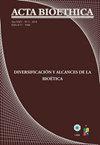牙科students& # 8217;同理心水平和对优秀牙医属性的看法:一项队列研究
IF 0.3
4区 哲学
引用次数: 0
摘要
共情是医患关系的基础,影响临床结果。本研究的目的是确定牙科学生的本文章由计算机程序翻译,如有差异,请以英文原文为准。
Dental students’ empathy levels and opinions about attributes for “good dentist”: a cohort study
Empathy is fundamental to the physician-patient relationship and influences the clinical outcomes. The aim of this study was to determine the dental studentsâ empathy levels and to compare their opinions on attributes of a âgood dentistâ. This cohort research was included 79 dental students volunteering to participate in the study at a public university. The data were collected by the Dökmenâs Empathic Tendency Scale (ETS) and Empathic Skill Scale (ESS). In this study, from the orientation day to the end of the third-year, the dental studentsâ ETS mean scores (respectively 69.59 and 68.34) and ESS mean scores (respectively 142.53 and 140.00) showed a decline. At the end of the third-year, starting clinical rotations and taking patient responsibility may lead to decrease the empathy levels of students. The findings of our study show that female students have higher empathy tendency and skill scores compared to male students (p<0.001). In the ranking of the attributes required to be a good dentist, empathy was ranked 4th by the first-year students, while final-years students placed empathy in second rank (p<0.05). According to these results, it is possible to claim that the dentist candidates realized that being empathetic is necessary to be a good dentist.
求助全文
通过发布文献求助,成功后即可免费获取论文全文。
去求助
来源期刊

Acta Bioethica
医学-卫生政策
CiteScore
0.60
自引率
0.00%
发文量
22
审稿时长
1 months
期刊介绍:
Acta Bioethica is a biannual publication by the Interdisciplinary Center for Studies in Bioethics of the University of Chile (ISSN 0717-5906, press edition, y 1726-569-X, electronic edition), which publishes in three languages: Spanish, English and Portuguese.
Indexed in Science Citation Index (SCI), Scopus, Lilacs, SciELO y Latindex, and in database from several Institutions; it constitutes a pluralistic source of perspectives and an important tribune which accepts the contributions of authors compromised with the interdisciplinary study of ethical determinants and consequences of techno scientific research.
 求助内容:
求助内容: 应助结果提醒方式:
应助结果提醒方式:


